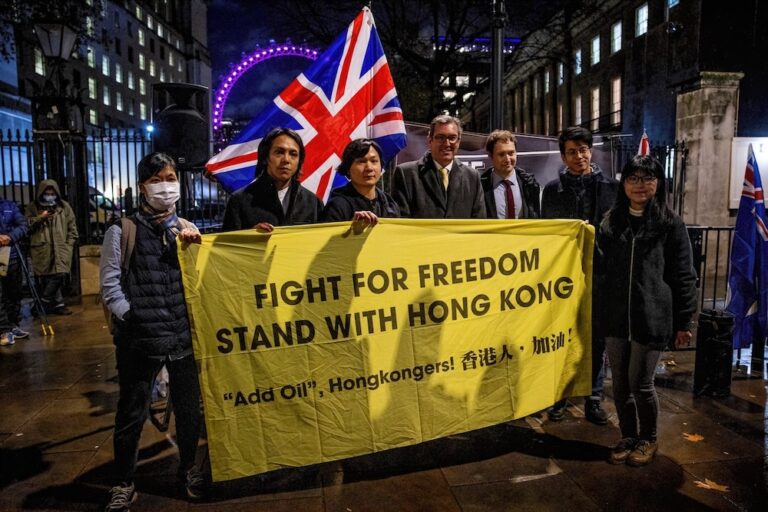Paul Chambers' conviction was quashed following a Divisional Court ruling that a Tweet in which Chambers jokingly threatened to blow up an airport was not objectively "menacing".
(ARTICLE 19/IFEX) – London, 27 July 2012 – The conviction of Paul Chambers was quashed today following the Divisional Court’s judgment that his Tweet in January 2010 in which he jokingly threatened to blow up Nottingham’s Robin Hood airport was not objectively ‘menacing’, contrary to section 127 of the Communications Act 2003. ARTICLE 19 intervened in the case arguing that criminalising jokes online is a violation of the right to freedom of expression.
“This is a victory for common sense and freedom of expression online. The right to express ideas and information includes the right to make jokes, even if others may find them unfunny, distasteful or even shocking. The lower courts exaggerated the Tweet and made it into a threat, when it was clearly a joke made in jest. We welcome the Divisional Court’s ruling for the protection it gives to online speech and the freedom to tweet in particular,” said Agnes Callamard, Executive Director of ARTICLE 19.
In May 2010, Chambers was convicted in the Doncaster Magistrates Court, and fined £385 and ordered to pay costs of £600 for joking on Twitter that he would blow up Robin Hood airport. His conviction was subsequently confirmed by the Doncaster Crown Court.
Today, Chamber’s appeal was allowed. Handing down the Divisional Court judgment, the Lord Chief Justice, Lord Judge, said that the context of the tweet made clear that it was meant as a joke:
[T]he more one reflects on it, the clearer it becomes that this message did not represent a terrorist threat, or indeed any other form of threat. It was posted on “Twitter” for widespread reading, a conversation piece for the appellant’s followers, drawing attention to himself and his predicament. Much more significantly, although it purports to address “you”, meaning those responsible for the airport, it was not sent to anyone at the airport or anyone responsible for airport security, or indeed any form of public security. The grievance addressed by the message is that the airport is closed when the writer wants it to be open. The language and punctuation are inconsistent with the writer intending it to be or to be taken as a serious warning. Moreover . . . it is unusual for a threat of a terrorist nature to invite the person making it to be readily identified, as this message did. Finally, although we are accustomed to very brief messages by terrorists to indicate that a bomb or explosive device has been put in place and will detonate shortly, it is difficult to imagine a serious threat in which warning of it is given to a large number of tweet “followers” in ample time for the threat to be reported and extinguished [para 31].
The Divisional Court held that the Crown Court erred in its assessment that Chambers’ tweet was “menacing” because it had placed “disproportionate weight” on the possibility of how “some” people might react, “without recognising that the care needed to approach such a widely phrased question in context”. The Divisional Court concluded that after “an objective assessment, the decision of the Crown Court that this ‘tweet’ constituted or included a message of a menacing character was not open to it.”
ARTICLE 19 made a written submission in the appeal concerning the right to freedom of expression in the context of jokes and mock threats. In its submission, ARTICLE 19 said that the freedom to express ideas and information, opinions and beliefs includes the freedom to do so using humour; it necessarily includes the freedom to joke, to make light of serious things, to jest, to exaggerate, to trivialise, to satirise, parody and mock; and it does not matter that some people may believe a person’s attempt at humour is unsuccessful.
The Lord Chief Justice agreed, stating that, “Satirical, or iconoclastic, or rude comment, the expression of unpopular or unfashionable opinion about serious or trivial matters, banter or humour, even if distasteful to some or painful to those subjected to it should and no doubt will continue at their customary level, quite undiminished by this legislation. Given the submissions by Mr Cooper, we should perhaps add that for those who have the inclination to use Twitter for the purpose, Shakespeare can be quoted unbowdlerised, and with Edgar, at the end of King Lear, they are free to speak not what they ought to say, but what they feel [para20].”
ARTICLE 19 welcomes today’s decision as a reassuring precedent for freedom of expression online.


